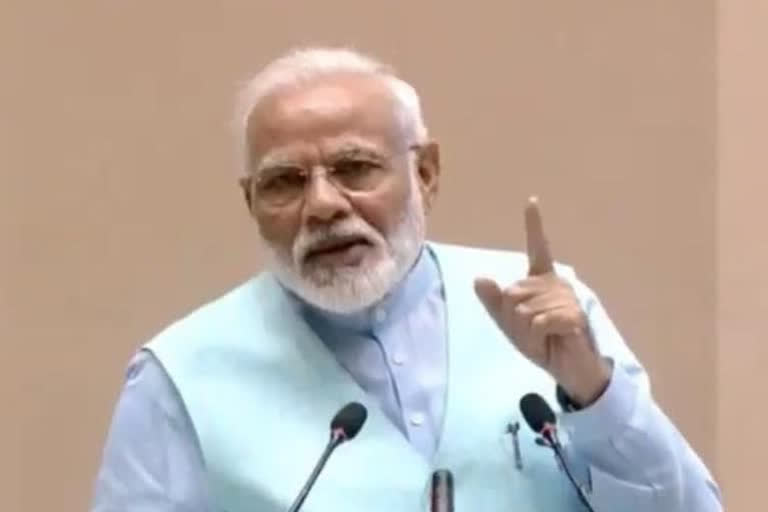New Delhi: Prime Minister Narendra Modi on Saturday paid tributes to one of the icons of India's freedom struggle Bal Gangadhar Tilak on his 100th death anniversary, saying his intellect, courage and idea of "swaraj" continue to inspire people.
He also shared a brief video of one of his 'Mann ki Baat' programmes in which he had referred to Tilak's efforts to unite people against the British rule.
"India bows to Lokmanya Tilak on his 100th punya tithi (death anniversary). His intellect, courage, sense of justice and the idea of Swaraj (self-rule) continue to inspire," Modi tweeted.
-
India bows to Lokmanya Tilak on his 100th Punya Tithi.
— Narendra Modi (@narendramodi) August 1, 2020 " class="align-text-top noRightClick twitterSection" data="
His intellect, courage, sense of justice and idea of Swaraj continue to inspire.
Here are some facets of Lokmanya Tilak’s life... pic.twitter.com/9RzKkKxkpP
">India bows to Lokmanya Tilak on his 100th Punya Tithi.
— Narendra Modi (@narendramodi) August 1, 2020
His intellect, courage, sense of justice and idea of Swaraj continue to inspire.
Here are some facets of Lokmanya Tilak’s life... pic.twitter.com/9RzKkKxkpPIndia bows to Lokmanya Tilak on his 100th Punya Tithi.
— Narendra Modi (@narendramodi) August 1, 2020
His intellect, courage, sense of justice and idea of Swaraj continue to inspire.
Here are some facets of Lokmanya Tilak’s life... pic.twitter.com/9RzKkKxkpP
The prime minister recalled how Tilak evoked self-confidence among people and gave the slogan 'Swaraj is our birthright and I shall have it'.
Also read: PM Modi to address grand finale of Smart India Hackathon 2020 at 4:30 pm today
On the other hand, Union Home Minister Amit Shah on Saturday attended a webinar 'Lokmanya Tilak: Swaraj to Atmanirbhar Bharat' organised by Indian Council for Cultural Relations (ICCR).
Bal Gangadhar Tilak's famous declaration "Swaraj is my birthright, and I shall have it" served as a powerful clarion call to the future revolutionaries of India's struggle for independence.
Tilak was one of the founding fathers of the Deccan Education Society created in 1884, he saw education as a force multiplier in the dissemination of the ideas of democracy and liberalism.
Inputs from agencies



